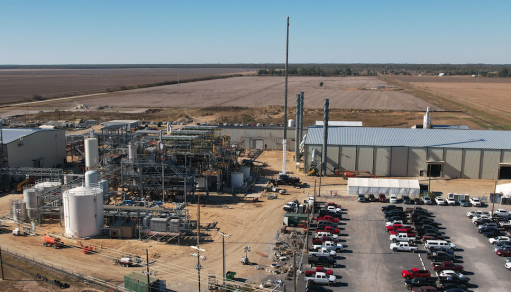
The 11 250 t/y active anode material (AAM) facility that graphite miner Syrah Resources is building in the US is about to produce its first finished product.
The company, which owns the Balama graphite mine in Mozambique, has experienced some delays at the Vidalia initial expansion project, following commissioning hiccups and having to contend with the longest hard freeze conditions in Louisiana in 30 years in January.
The heating cycle for the first furnace line started in early January and the first carbonisation of pitch coated spherical graphite will be completed to produce first finished AAM product from the facility “imminently”.
Production from Vidalia in February will make Syrah the first commercial-scale, vertically integrated natural graphite AAM supplier outside China, the ASX-listed company said in a statement on Wednesday.
The total cost for the Vidalia initial expansion has been increased to $209-million, up about 5% from the previously total installed capital guidance of $198-million and about 19% more than the cost estimate in the final investment decision.
Syrah explained that the escalation was the result of unplanned indirect costs on equipment purchases and additional commissioning costs.
The company has an initial 8 000 t/y offtake agreement with electric vehicle (EV) manufacturer Tesla for production from Vidalia Phase 2. New facility qualification processes will begin once production gets under way.
Tesla has taken an option for an additional 17 000 t/y from the facility if it is expanded to 45 000 t/y. This Phase 3 expansion is currently being progressed through engineering, permitting and other long-lead procurement activities ahead of an FID.
Syrah also has nonbinding memoranda of understanding with Ford and SK On, LG Energy and Samsung SDI to evaluate supply from the Louisiana facility.
Syrah partly funded the Vidalia Phase 2 project with a $102-million loan from the US Department of Energy and has applied for an additional $350-million to support the further expansion of the plant.